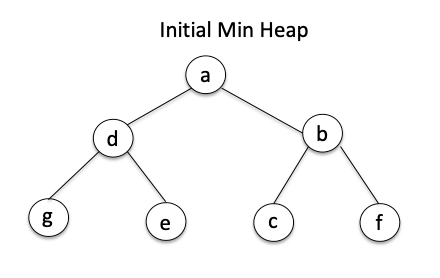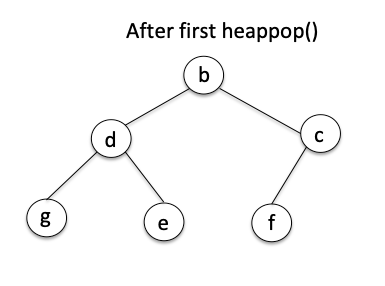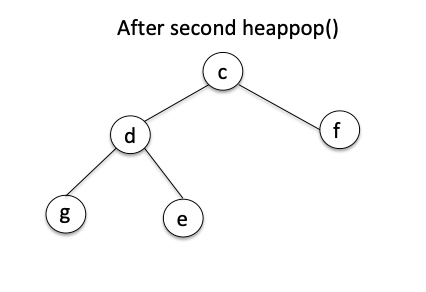Overview:
- The functions of the heapq module enable construction and manipulation of min heaps.
- The heap is constructed as a binary tree. In a min heap the smallest element is at the root. The child nodes store values greater than the parent nodes.
- The heappop() function removes and returns the smallest element from the heap.
- As heappop() is called it removes and returns the root node of a min heap and invalidates the heap to maintain the heap invariant.
Example:
|
# Example Python program that removes smallest element(s) from a # min heap using heappop() function import heapq
# Construct a heap heapElements = ["a", "d", "b", "g", "e", "c", "f" ] print("Original list:%s"%heapElements)
heapq.heapify(heapElements) print("Result of calling heapq.heapify():%s"%heapElements) print(heapElements)
# Remove the smallest element from the heap smallest = heapq.heappop(heapElements) print("Smallest element:%s"%smallest) print("Updated heap:%s"%heapElements)
# Remove the current smallest element smallest = heapq.heappop(heapElements) print("Currently the smallest element is:%s"%smallest) print("Updated heap:%s"%heapElements) |
Output:
|
Original list:['a', 'd', 'b', 'g', 'e', 'c', 'f'] Result of calling heapq.heapify():['a', 'd', 'b', 'g', 'e', 'c', 'f'] ['a', 'd', 'b', 'g', 'e', 'c', 'f'] Smallest element:a Updated heap:['b', 'd', 'c', 'g', 'e', 'f'] Currently the smallest element is:b Updated heap:['c', 'd', 'f', 'g', 'e'] |


